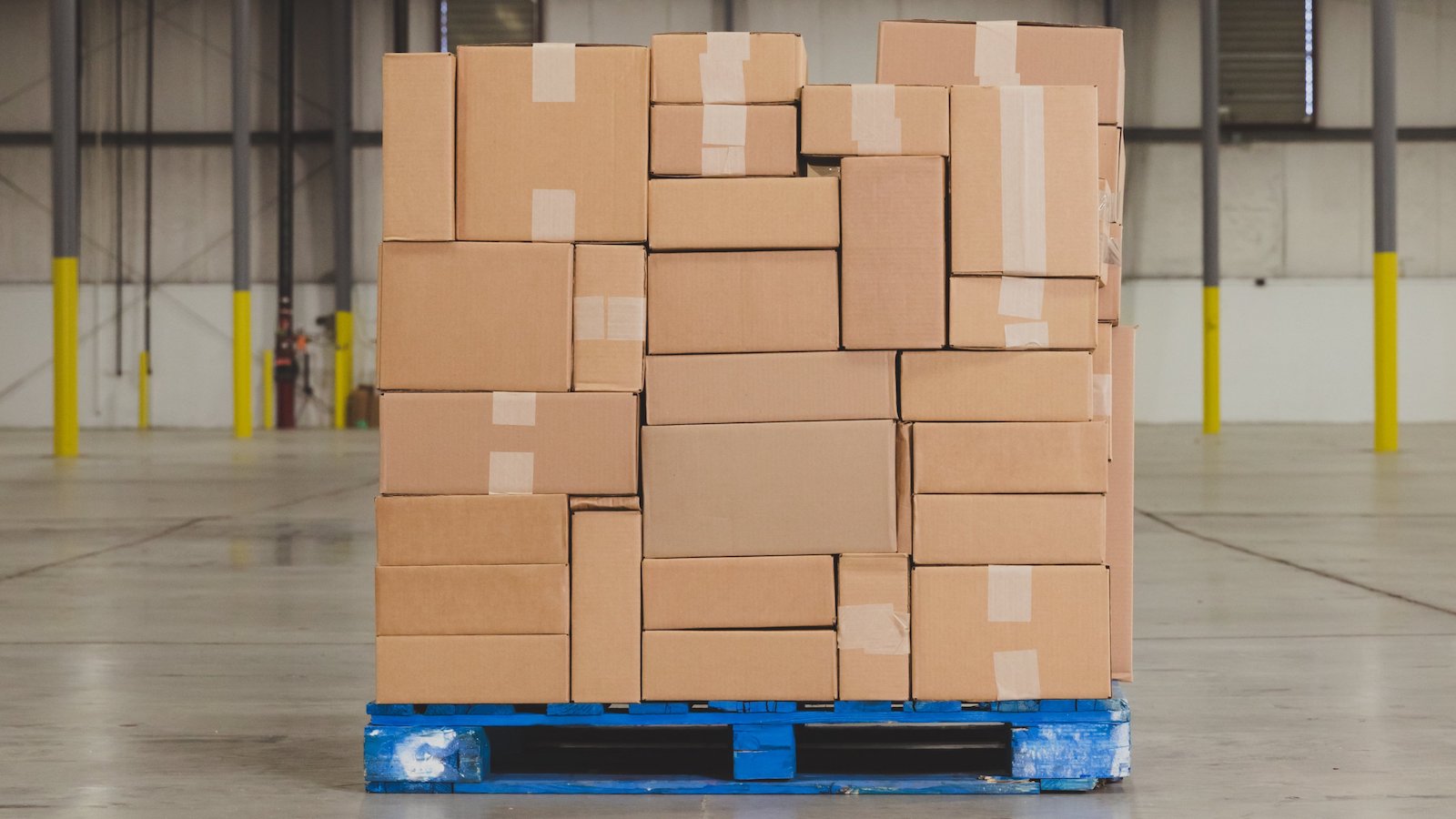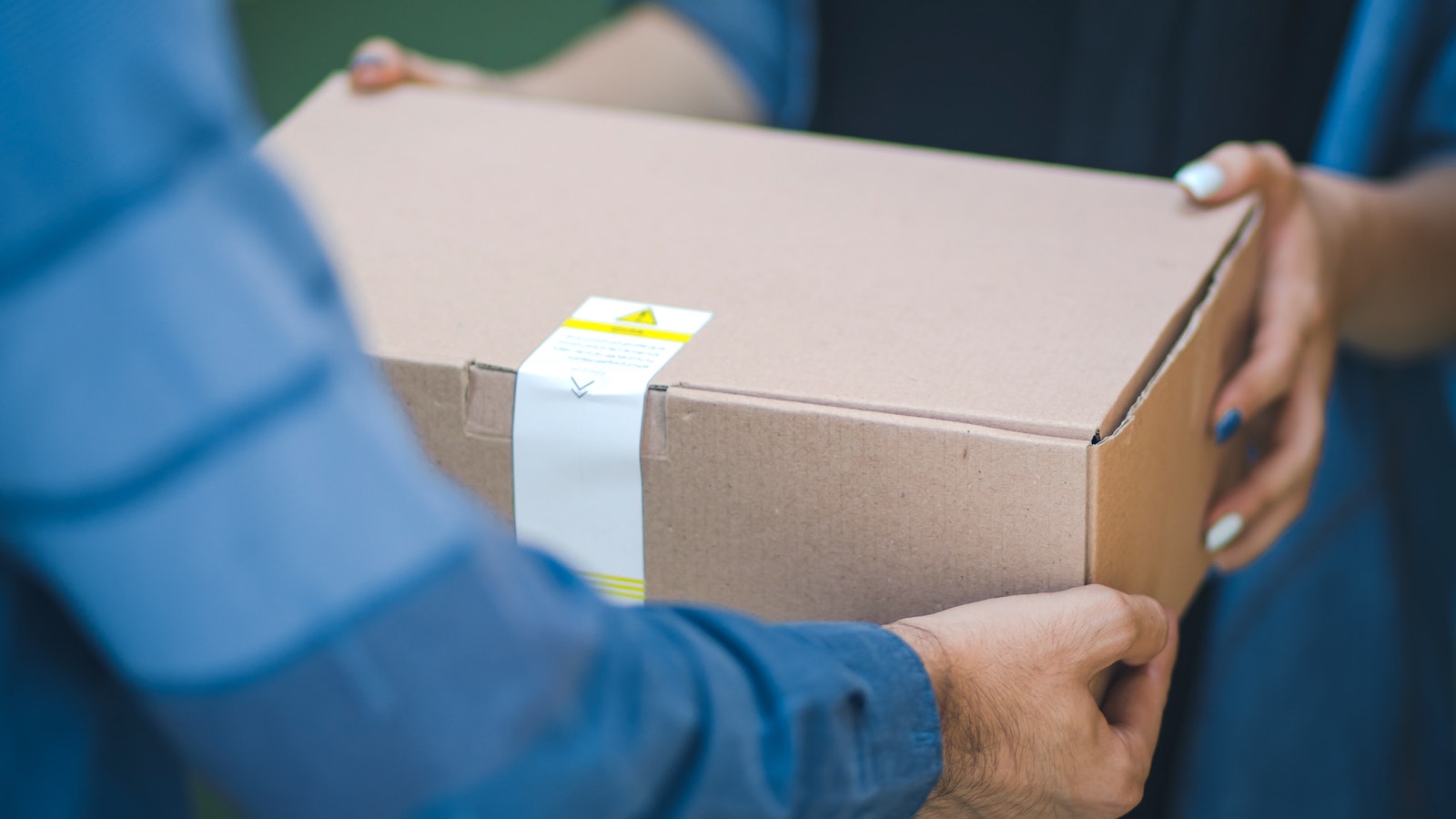Table of Contents
** Minutes
What types of fulfilment are there?
Benefits of a hybrid fulfilment model
Is a hybrid fulfilment approach right for me?
Let’s face it — there is no one-size-fits-all solution when it comes to fulfilment.
Depending on whether a business sells across multiple channels, offers a subscription box service, or ships to customers across the world — order fulfilment requires deliberate supply chain planning and execution to meet ever-changing market demands.
To establish an agile supply chain, one of the biggest trends we’re seeing in fulfilment is the idea of going “hybrid” in order to meet customer expectations, stay competitive, optimise costs, and reduce risk.
Let’s take a closer look at what hybrid fulfilment is, how businesses can benefit from it, and whether it’s a good option for you.
What is hybrid fulfilment?
Hybrid fulfilment refers to a flexible and diverse approach to filling orders, which may use a combination of different fulfilment models, including in-house fulfilment, dropshipping, and/or third-party logistics.
This type of fulfilment model offers ecommerce businesses in both direct-to-consumer and B2B ecommerce more freedom in how they manage their supply chain and order types.
Just like businesses around the world have evolved into hybrid workplaces for partially remote and in-person environments, hybrid fulfilment has evolved to meet the hybrid consumer where they are, giving brands greater flexibility and more options to get orders to those customers.
What types of fulfilment are there?
Today, ecommerce businesses have more options on how to manage fulfilment than ever before. Here is an overview of the three most common fulfilment types.
In-house fulfilment
In-house fulfilment is when a business handles the entire fulfilment processes on its own, from warehousing and inventory management to picking, packing, and shipping.
Businesses that choose to fulfil orders in house hire staff and purchase equipment and space needed to fulfil orders efficiently (whether it’s in their own home or leasing a warehouse).
In-house fulfilment is a great option for businesses that want complete control over their logistics operations and have the means to manage it all themselves without compromising the customer experience.
Dropshipping
With dropshipping, a business’s supplier or manufacturer sends orders directly to the end customer.
This fulfilment method gives merchants to freedom to focus their time and energy on other parts of their business without needing to worry about inventory management or shipping orders themselves.
Though competitive and lacking some quality control and oversight, t’s a pretty hands-free approach that works well for businesses that are just starting out or don’t have the resources to handle inventory on their own.
Third-party fulfilment
Third-party fulfilment relies on a third-party logistics provider (3PL) to take charge of fulfilment.
A business’s 3PL partner handles every aspect of the retail fulfilment process: warehouse receiving, inventory management, storage, picking and packing, and shipping.
Outsourcing fulfilment to a third-party enables fast-growing brands in both the direct-to-consumer and B2B space to fully delegate the fulfilment process to experts.
“We never wanted to be a logistics company, so we found a really good partner in ShipBob to offer the fulfilment services, technology, and other tools needed to stay competitive.”
Matt Dryfhout, Founder & CEO of BAKblade
Hybrid order fulfilment
Hybrid order fulfilment involves using all or some of the above fulfilment approaches rather than solely relying on one.
This approach offers more flexibility to ecommerce businesses and enables a more resilient supply chain to meet ever-changing market demands while also enabling growth.
For example, a global ecommerce business might stick with in-house fulfilment for local shipments, rely on a 3PL to take care of international shipping, and work with a dropshipper for specific items in their product catalogueueue.
Hybrid fulfilment is a great option for businesses that are growing fast, offer a diverse range of products, serve a multitude of markets with different expectations, and require a custom fulfilment solution to meet the needs of the business and its customers (e.g., outsourcing fulfilment of fast-moving products and fulfiling rarely orders SKUs themselves, only fulfiling regional orders themselves, etc.).
Benefits of a hybrid fulfilment model
The hybrid fulfilment model has become a popular approach for growing ecommerce businesses due to the flexibility and customisation it offers. Since there are different fulfilment strategies to choose from, you can easily change directions and have something to fall back on.
Choosing to go “hybrid” with your fulfilment strategy offers freedom to test out new products, processes, and channels without too much risk.
With the ability to choose between multiple fulfilment options, a hybrid approach also has the potential to be more cost-effective if established well; you will need to be strategic about which products get shipped using each method.
For example, if you’re planning to introduce a new line of products, dropshipping may be more cost-effective since you won’t have to stock large amounts of inventory and rack up carrying costs.
Or if you’re selling large and heavy items but lacking the facilities and resources to fulfil them, outsourcing to a 3PL will help you save on storage, labour, and equipment costs.
Is a hybrid fulfilment approach right for me?
Hybrid fulfilment is always an option for ecommerce businesses. But there are a lot of moving parts involved since you have to manage or at least oversee multiple fulfilment operations.
Managing your inventory across different locations and ensuring orders are fulfiled on time through all these different approaches can be challenging and time-consuming.
However, supply chain technology makes it easier to manage it all by centralising important, real-time data.
With the right strategy, resources, and technology, a hybrid fulfilment model can give your business the flexibility you need to grow.
This option is ideal for you if:
- You have a lease for a warehouse but want better coverage on the other side of the country (or in other countries).
- You only want to fulfil certain products yourself.
- You’re constantly testing new products, concepts, processes, and channels.
- You’re experimenting with online sales for your physical store and want to offer both pickup and delivery options.
- You have the resources to efficiently manage all of the different fulfilment methods involved in your strategy.
- You don’t have the facilities or don’t want to store and manage large amounts of ecommerce inventory.
- You need a different fulfilment options to serve product customisation needs and meet consumer expectations.
How ShipBob enables growth through fulfilment
Whether you’re choosing to go hybrid or looking to outsource fulfilment to the experts, having a reliable ecommerce fulfilment partner is crucial.
ShipBob is a premium fulfilment solution that:
- Offers a warehouse management system (WMS) you can use to fulfil your own orders and even utilise ShipBob’s fulfilment network if you want (e.g., in other countries) for a hybrid fulfilment approach.
- Handles every aspect of your fulfilment process – from storing and managing your inventory to getting them delivered to your customers’ doorsteps. We can take some of your products to fulfil (or all).
ShipBob’s best-in-class technology integrates with your store(s), so whichever orders you want us to fulfil are automatically sent to our warehouse(s), where they’re immediately picked, packed, and shipped out.
Have your own warehouse and want a hybrid fulfilment solution?
With ShipBob, you also have the option to utilise our warehouse management technology to strengthen your in-house fulfilment operations. Our all-in-one platform helps you manage orders, inventory, and your warehouse so you can optimise and improve your fulfilment processes.
“One of the biggest reasons we went with ShipBob is the multiple checks from start to finish. The WMS makes it really hard to send out the wrong product. Before we implemented ShipBob’s WMS, our order accuracy rate was around 92%. Now we’re at 99.7% for order accuracy, which equates to 2,100 less mispicks a year on average.”
Jourdan Davis, Operations Manager at Pit Viper
Additionally, ShipBob’s distributed, international fulfilment network allows you strategically store your inventory closer to your customers.
Through the ShipBob dashboard, you’re given insights into how to create an ideal distribution based on where your customers are located. With this information, you can establish a strategic and optimised distribution strategy to reduce shipping costs while speeding up last-mile delivery.
“We just got started in ShipBob’s EU fulfilment centre, and will next expand into their UK facility to continue building momentum. When I was shipping orders myself, what I paid per order is the same price now to pick, pack, and ship orders through ShipBob.
It’s even much cheaper to ship to certain countries, which used to take ages and often got lost with localised post here. Now, I have very transparent pricing, and I can easily run and plan my business.”
Leonie Lynch, Founder & CEO of Juspy
No matter where your business is in terms of growth and expansion, ShipBob can meet you where you are and help you get to where you want to go.
Whether you’re looking for a technology to support your in-house operations or need access to a global fulfilment network, ShipBob offers the resources, expertise, and world-class service you need to grow your ecommerce business.
For more information about our technology, expertise, and fulfilment network, contact the ShipBob team today.
Hybrid fulfilment FAQs
Here are answers to the top questions about hybrid fulfilment.
What is hybrid order fulfilment in ecommerce?
Hybrid fulfilment refers to a flexible and diverse approach to filling orders, which uses a combination of different fulfilment models, including in-house fulfilment, dropshipping, and/or third-party logistics.
Is hybrid fulfilment good for ecommerce businesses?
With the flexibility it offers, hybrid fulfilment is a great option for ecommerce businesses that want to continue to scale and experiment with different approaches before making a commitment (or while in transition with a warehouse lease). For example, you could start by implementing a 3PL’s technology to strengthen your in-house fulfilment operations before fully outsourcing fulfilment operations.
Does hybrid fulfilment require a 3PL company?
Sometimes, but not always. A hybrid fulfilment strategy could consists of 2 or more of the following: in-house fulfilment, dropshipping, and third-party fulfilment. However, many 3PLs like ShipBob offer technology and geographic locations you can use without making a commitment to 100% fulfilment with a 3PL.
Can ShipBob handle hybrid fulfilment?
Yes. Whether you’re looking for a powerful logistics technology such as a WMS to support your in-house operations, or need access to a global fulfilment network, ShipBob offers the resources, expertise, and world-class service you need to grow your ecommerce business. For example, you can fulfil certain products yourself (or orders in nearby regions yourself), and have ShipBob fulfil your fastest-moving SKUs and/or fulfil your orders in the EU, Australia, etc.



